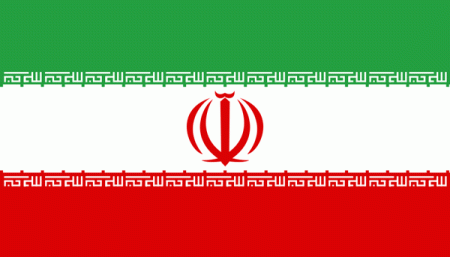
Silence is complicity. Our president’s refusal to take a forthright moral stand on the side of the Iranian freedom marchers is read in Tehran as a blank check for the current regime.
[…[
To Obama, his dogmatic commitment to negotiations is infinitely more important than a few million protesters chanting the Farsi equivalent of “We Shall Overcome.”
This is madness. There is no chance — zero, null, nada — that negotiations with the junta of mullahs will lead to the termination (or even a serious interruption) of Iran’s pursuit of nuclear weapons. Our president’s faith in his powers of persuasion is beginning to look pathological. Is his program of negotiations with apocalypse-minded, woman-hating, Jew-killing fanatics so sacrosanct that he can’t acknowledge human cries for freedom?
But whatever Obama’s reasons for casting himself as U.S. Couch-Potato-in-Chief while protesters bleed in the streets of Iran, he’s making a horrific mistake in choosing that role. In matters vital to American security, he’s passing up a prime chance to start filling those big shoes he won in America’s presidential race by promising “hope” and “change.”
We watched Gibbs say that what’s going on is vigorous debate. The shooting of eight demonstrators is not debate. The knocking of heads, bloodying of demonstrators by the Revolutionary Guards is not debate. The arbitrary arrest of journalists, political opposition, and students is not debate.
And to call it a debate and to use this neutral and denatured language is disgraceful.
Beyond that, the point here is no longer elections. The reason that at least eight have died is not because they wanted a recount of hanging chads in the outer precincts of Esfahan. What they wanted is to no longer live under a tyrannical dictatorship, a misogynistic, repressive, incompetent, and corrupt theocracy.
And that’s what the demonstration and the moment is all about. It’s about the regime. There is an opportunity — revolution is going to happen one way or the other eventually, and this theocracy will fall. It may not happen now, but it ought to be supported, because it might happen now, and it would change the world if it did.
Obama’s policy now requires getting past the election controversies quickly so that he can soon begin negotiations with the reelected Ahmadinejad government. This will be difficult as long as opposition protests continue and the government appears to be either unsettled or too brutal to do business with. What Obama needs is a rapid return to peace and quiet in Iran, not continued ferment. His goal must be to deflate the opposition, not to encourage it. And that, by and large, is what he has been doing.
If you find all this disturbing, you should. The worst thing is that this approach will probably not prevent the Iranians from getting a nuclear weapon.
Rather, as many of us suspected, Obama has placed his bets on the mullahs. It simply isn’t worth offending the regime. Because — yes, you’ve heard it before — nothing has changed and the Obama team, like a dog searching for an imaginary buried bone, has to go digging for the Grand Bargain.
Ramin Ahmadi (HT: Michael Totten):
The expulsion of foreign journalists is another ominous sign indicating that more bloodshed is planned. The government has made a calculated decision to confront demonstrations with pure force. It believes that the excitement of the people over the election results will be short lived. That the movement can be contained and the majority’s will can be subdued using massive force and unimaginable brutality. In preparation for that scenario, it plans to isolate the country from the rest of the world as much as possible.
Michael Ledeen, author of “The Iranian Time Bomb“:
I think that many pundits insist on thinking about the Iran-that-was-five-days-ago, instead of the bubbling cauldron that it is today. The same mistake is repeated when people say that Mousavi, after all, is “one of them,” a member of the founding generation of the Islamic Republic, and so you can’t expect real change from him. The president made that mistake when he said that he didn’t expect any real difference in Iran’s behavior, no matter how this drama plays out.
I think that is wrong; at this point, Mousavi either brings down the Islamic Republic or he hangs. If he wins, and the Islamic Republic comes down, we may well see the whole world change, from an end of the theocratic fascist system, to a cutoff of money, arms, technology, training camps and intelligence to the world’s leading terrorist organizations, and yes, even to a termination of the nuclear weapons program.
I think that, whatever or whoever Mir Hossein Mousavi was five days ago, he is now the leader of a mass movement that demands the creation of a free Iran that will rejoin the Western world.
A Mousavi victory sends a stunning rebuke to the most extreme anti-democratic, pro-fascistic forces in the region. It puts a sudden stop to the momentum of extremism, which until now was threatening not only the citizens of Israel and the West, but pro-Western Arab regimes like Egypt. It is easy for us to say that we’d rather wait for the “real” revolution, i.e., a pro-West democratic one. What’s more likely to happen if Mousavi fails is that Iranians will conclude that they’re better off just accepting their rulers than trying to overthrow them.